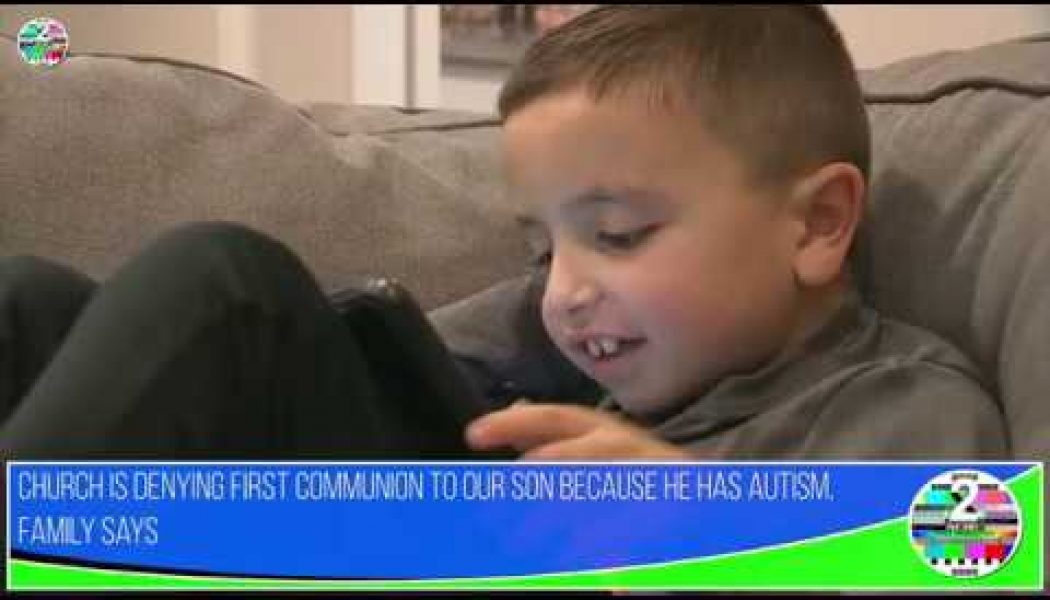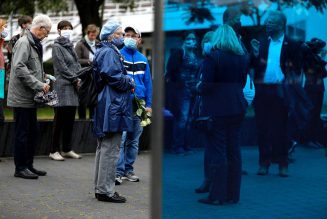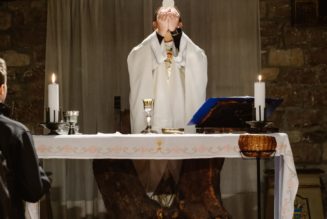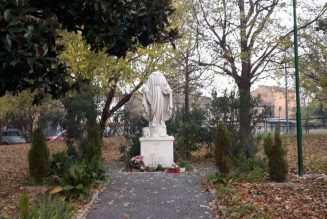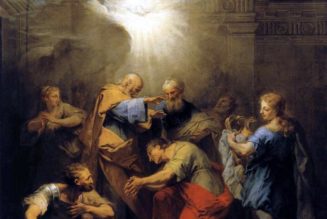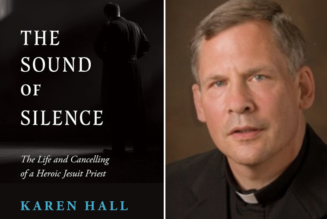Every now and then I get an email from a GetReligion reader who has, for all practical purposes, researched and written a perfect news-critique post for this blog.
It’s especially interesting when the email comes from someone who — in a perfect world — would make an ideal source for mainstream coverage of the very issue that he or she is concerned about.
So that’s what happened the other day when I received a note from Father Matthew Schneider, who writes at a blog called Through Catholic Lenses. He is also known, on Twitter, as @AutisticPriest — a fact that is relevant, in this case.
That is, the fact that Father Schneider is autistic is relevant because he has a natural concern for people facing autism and related challenges, which has led him to dig into church law and teachings on that topic.
This matters when facing a USA Today headline such as this one: “Boy with autism denied First Communion at Catholic church: ‘That is discrimination,’ mom says.”
What we have here is a perfect, 5-star example of a clash between parents — backed with press reports — and church officials who seem to think they have lots of time (In the social-media age? #DUH!) to figure out faithful responses to complex liturgical issues. It also helps, of course, when reporters fail to use search engines and plug into logical sources about Catholic teachings and even Canon Law.
Anyway, here is the overture to this story, which is long, but essential:
MANALAPAN, N.J. — Nicole and Jimmy LaCugna both grew up with a strong Catholic faith. Each attended religious education as children, married in a Catholic church and sent their first son, Nicholas, through a faith-based pre-K program.
So when their second son, 8-year-old Anthony, reached second grade last fall, he was on track to receive his first Holy Communion in April.
But just days ago, the couple learned Anthony would not be allowed to receive the sacrament at St. Aloysius in Jackson, New Jersey, the church the family has attended for years.
The reason given by the church: He has autism and is unable to express the contrition the church requires before receiving Communion.
Actually, the reference to “contrition” was part of an early response — but not the final story. This is clear, if readers hang on to some complex material near the end of this story.
But here is the basic outline for this painful train wreck.
(1) Church leaders make an initial decision on a complex issue.
(2) Outraged parents and/or activists immediately fight back in social media (like this).
(3) Church leaders begin researching various church statements on the issue at hand, thinking they have time to prepare a more nuanced and accurate statement.
(4) Parents and/or commentators on the viral post quickly contact local media.
(5) Initial media reports lead to blast of local, regional and even national press coverage.
(6) Heat from media reports stuns church leaders, especially since they didn’t think that their initial response was the carved-in-stone final statement on the issue.
Raise your hand if you have seen this process play out on a wide variety of hot-button or sensitive church issues.
Here is another crucial chunk of this USA Today report :
Nicole LaCugna said Anthony is diagnosed with a serious form of autism, is 100% nonverbal and with severe apraxia, which is defined as “a neurological disorder characterized by the inability to perform learned (familiar) movements on command, even though the command is understood and there is a willingness to perform the movement.”
In other words, this child’s condition would complicate the reception of Holy Communion in a number of ways — not just because he cannot go to Confession or answer even the most basic of questions about receiving the Sacrament.
That becomes apparent in this response — in social media — by Father John Bambrick, pastor of St Aloysius parish.
“The latest information states that in severe cases of disability we should now presume the severely disabled person has some interior life where God touches the soul, and we should rely on this for the severely disabled for First Holy Communion and for First Penance to allow a parent to inform the priest their child knows when they have done wrong. That is the basic sum of what I have found,” the email said, in part.
“This morning this was communicated to the family. We have dozens of handicapped, autistic, developmentally disabled, cognitively impaired and other forms of disability in our parish, and we recognize their dignity and strive to meet their needs while working within the framework of our faith,” the email continued. “I am still unsure as to how we will adapt this particular case, but we will work it out with the family.”
Nicole LaCugna said “this does not change our view. This only came about because of the feedback his parish is receiving. We were denied yesterday, so the so-called research stopped yesterday early.”
So who is the Canon Law authority who was interviewed for this story?
There appears to have been an attempt to talk with “Rayanne Bennett, executive director of communications and media for the Diocese of Trenton.” That’s that.
This brings us to the online piece by Father Schneider: “Non-Verbal Autistic Child Denied Communion: Some Lessons.” As you would expect, he has all kinds of relevant information that would have helped reporters do a better job of covering this issue. Here is a sample:
You will note that the father states the reason for denying Communion is not knowing right and wrong, which the parish and diocese state is only a reason for denying reconciliation, not Communion. Obviously, in general, it is advisable to do reconciliation before Communion. However, when we look at the diocesan norms or the USCCB norms, it becomes obvious that some people will reach the level for Communion but not reconciliation. These people should be given Communion.
The USCCB (US Bishops’) norms go further than the diocesan norms and make me wonder if any by-passing of guidelines needs to be done as the parish proposes. The USCCB bases its rule on canon 913, which states children can be given Communion “if they can distinguish the body of Christ from ordinary food and receive communion reverently.” Furthermore, the USCCB notes, “Cases of doubt should be resolved in favor of the right of the Catholic to receive the sacrament. The existence of a disability is not considered in and of itself as disqualifying a person from receiving Holy Communion.” I suspect the cases would be almost nonexistent where a child was physically capable of receiving Communion and completely incapable of distinguishing the Eucharist from other food. The requirement is not that they recognize transubstantiation but something akin to “food at church” vs. “food at home” would suffice.
Thus, the entire media storm is based on incomplete information, as church officials at one level of the story scrambled to find out how to deal with several church statements linked to this issue.
So what should JOURNALISTS learn from this case study?
In order to play fair, the man known as @AutisticPriest limits his commentary to sources that journalists would have encountered in the first screen or two of a simple Google search on this topic.
There are several obvious places to look for comment regarding Catholicism & autism. Three immediately come to mind that are top Google results: the National Catholic Partnership on Disabilities, myself, and the USCCB norms cited above. A good journalist would have done simple background research with one or more of these to give the story context or to get the other side of the story.
In their reports, Fox, two ABC affiliates, NJ.com, NBC News, and The Mighty did not quote any of these. The New York Post and New Jersey 101.5 at least found the USCCB norms and cited them. Nobody sought me out save Deacon Greg Kandra who will probably cite this blog over on his daily Catholic headlines site.
Deacon Kandra? He is, of course, a veteran reporter with experience at CBS News and “60 Minutes,” before becoming a permanent Catholic deacon. That’s another name reporters could add to their files.
Just saying.
